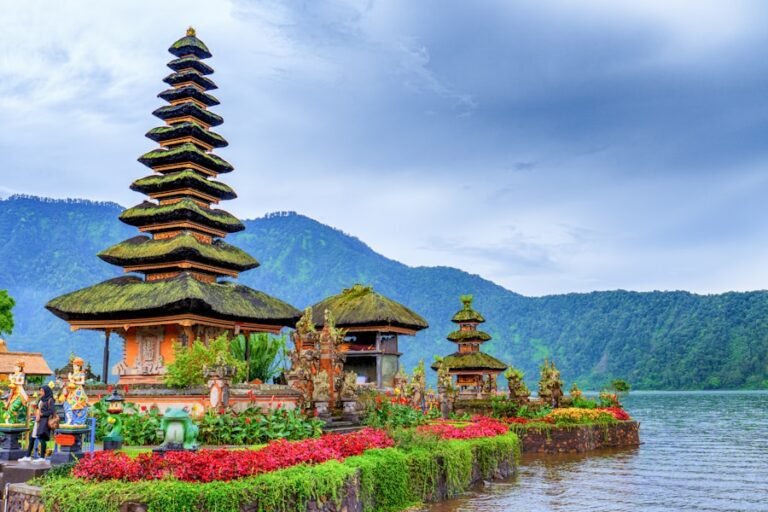Living off-grid in Bali means living independently from the main public utilities such as electricity, water, and sewage systems. It involves relying on self-sustainable energy sources, water management, and waste management. Off-grid living in Bali offers a unique opportunity to live in harmony with nature, reduce environmental impact, and embrace a simpler way of life. It requires a shift in mindset and a commitment to sustainable living practices. Embracing off-grid living in Bali means being self-reliant and making conscious choices to minimize one’s ecological footprint.
Living off-grid in Bali also means being connected to the natural environment and embracing a more holistic way of life. It involves being mindful of resource consumption, conserving energy, and utilizing renewable energy sources. Off-grid living in Bali offers the opportunity to live in closer harmony with nature, away from the hustle and bustle of urban life. It allows for a deeper connection to the land, the community, and the environment. Understanding the challenges and rewards of off-grid living in Bali is essential for those considering this lifestyle choice.
Embracing Sustainable Energy Solutions in Bali
Embracing sustainable energy solutions is crucial for off-grid living in Bali. The island’s abundant sunshine makes solar power an ideal energy source for off-grid homes and communities. Solar panels can be used to harness the sun’s energy and provide electricity for lighting, appliances, and other electrical needs. In addition to solar power, wind turbines can also be utilized to generate electricity in areas with consistent wind patterns. Embracing sustainable energy solutions in Bali means reducing reliance on fossil fuels and minimizing environmental impact.
In addition to solar and wind power, off-grid living in Bali can also benefit from other sustainable energy sources such as hydroelectric power and biomass energy. Hydroelectric power can be harnessed from natural water sources, while biomass energy can be derived from organic materials such as agricultural waste and wood. Embracing a diverse range of sustainable energy solutions is essential for off-grid living in Bali to ensure a reliable and consistent energy supply. By embracing sustainable energy solutions, off-grid communities in Bali can reduce their carbon footprint and contribute to a cleaner and more sustainable environment.
Solar Power: Harnessing the Sun’s Energy for Off-Grid Living
Solar power is a key component of off-grid living in Bali, where the sun shines abundantly throughout the year. Solar panels can be used to capture the sun’s energy and convert it into electricity for off-grid homes and communities. The use of solar power not only reduces reliance on fossil fuels but also provides a clean and renewable energy source. In addition to providing electricity for lighting and appliances, solar power can also be used for heating water and powering other electrical needs. Harnessing the sun’s energy through solar power is an effective way to achieve energy independence and reduce environmental impact.
Off-grid living in Bali can benefit from both grid-tied and off-grid solar power systems. Grid-tied systems allow excess solar energy to be fed back into the main electricity grid, while off-grid systems store excess energy in batteries for later use. Both systems offer reliable and sustainable energy solutions for off-grid living in Bali. By harnessing the sun’s energy through solar power, off-grid communities can enjoy a consistent and renewable source of electricity while minimizing their ecological footprint. Solar power is a key component of sustainable living in Bali and offers a viable solution for off-grid energy needs.
Water Management: Sustainable Solutions for Off-Grid Living
Water management is a critical aspect of off-grid living in Bali, where access to clean and reliable water sources is essential for daily life. Off-grid communities can utilize various sustainable solutions for water management, including rainwater harvesting, well water, and water filtration systems. Rainwater harvesting involves collecting rainwater from rooftops and storing it in tanks for later use. Well water can be accessed through natural underground aquifers, while water filtration systems can be used to purify water from rivers or streams. Sustainable water management is essential for off-grid living in Bali to ensure a consistent and reliable water supply.
In addition to sustainable water sources, off-grid communities in Bali can also benefit from water conservation practices such as water-efficient appliances, greywater recycling, and permaculture design principles. Water-efficient appliances can help minimize water consumption, while greywater recycling systems can reuse wastewater for irrigation and other non-potable uses. Permaculture design principles can also be applied to create water-efficient landscapes that maximize water retention and minimize runoff. By implementing sustainable water management solutions, off-grid communities in Bali can reduce their reliance on public water utilities and minimize their impact on local water resources.
Sustainable Agriculture: Growing Your Own Food Off-Grid
Sustainable agriculture is an integral part of off-grid living in Bali, where growing one’s own food offers a sense of self-sufficiency and connection to the land. Off-grid communities can embrace sustainable agriculture practices such as organic farming, permaculture, and agroforestry to produce a diverse range of fruits, vegetables, and herbs. Organic farming involves cultivating crops without synthetic pesticides or fertilizers, while permaculture focuses on creating self-sustaining ecosystems that mimic natural patterns and processes. Agroforestry integrates trees, crops, and livestock to create diverse and productive landscapes. By embracing sustainable agriculture, off-grid communities in Bali can reduce their reliance on store-bought food and contribute to a more resilient and sustainable food system.
In addition to growing food, off-grid communities in Bali can also engage in livestock rearing, aquaculture, and beekeeping to further enhance their self-sufficiency. Livestock rearing can provide meat, dairy, and eggs, while aquaculture can produce fish and other aquatic foods. Beekeeping can yield honey and other bee products while also supporting pollination of crops. By diversifying their agricultural activities, off-grid communities can create a more resilient and sustainable food system that meets their nutritional needs while minimizing environmental impact. Sustainable agriculture is a key component of off-grid living in Bali and offers numerous benefits for both individuals and communities.
Waste Management: Eco-Friendly Solutions for Off-Grid Living
Waste management is an important consideration for off-grid living in Bali, where minimizing waste and implementing eco-friendly solutions are essential for environmental sustainability. Off-grid communities can embrace various waste management practices such as composting, recycling, and upcycling to reduce their ecological footprint. Composting involves converting organic waste into nutrient-rich soil amendments for gardening and agriculture, while recycling involves reusing materials such as plastic, glass, metal, and paper. Upcycling involves repurposing discarded items into new products or materials. By implementing eco-friendly waste management solutions, off-grid communities in Bali can minimize their impact on the environment while promoting resource conservation.
In addition to waste reduction practices, off-grid communities can also utilize alternative waste disposal methods such as biogas digesters and vermiculture. Biogas digesters can convert organic waste into biogas for cooking and heating, while vermiculture involves using earthworms to decompose organic waste into nutrient-rich vermicompost. These alternative waste disposal methods offer sustainable solutions for managing organic waste while also producing valuable resources for off-grid communities. By embracing eco-friendly waste management practices, off-grid communities in Bali can create a more sustainable and resilient living environment that minimizes pollution and promotes resource conservation.
Community and Support: Thriving in an Off-Grid Lifestyle in Bali
Community and support are essential for thriving in an off-grid lifestyle in Bali, where collaboration, shared resources, and mutual assistance are key components of sustainable living. Off-grid communities can benefit from building strong social networks, sharing knowledge and skills, and creating supportive relationships with neighbors and like-minded individuals. Community-based initiatives such as community gardens, cooperative purchasing, and skill-sharing workshops can help foster a sense of belonging and mutual support among off-grid residents. By working together, sharing resources, and supporting one another, off-grid communities in Bali can thrive in their sustainable lifestyle while building resilience and self-sufficiency.
In addition to community support, off-grid living in Bali can also benefit from access to local markets, educational programs, and support networks that promote sustainable living practices. Local markets provide opportunities for buying and selling locally produced goods while also fostering connections between producers and consumers. Educational programs offer opportunities for learning about sustainable agriculture, renewable energy, water management, waste reduction, and other aspects of off-grid living. Support networks such as environmental organizations, community groups, and government agencies can provide valuable resources, information, and assistance for those pursuing an off-grid lifestyle in Bali. By building strong community connections and accessing supportive networks, off-grid residents can thrive in their sustainable lifestyle while contributing to a more resilient and sustainable society.
In conclusion, understanding off-grid living in Bali involves embracing a self-sustainable lifestyle that minimizes reliance on public utilities while maximizing harmony with nature. Embracing sustainable energy solutions such as solar power is crucial for providing reliable electricity while reducing environmental impact. Water management practices such as rainwater harvesting and conservation are essential for ensuring a consistent supply of clean water. Sustainable agriculture offers opportunities for growing food locally while minimizing reliance on store-bought produce. Eco-friendly waste management practices help minimize pollution while promoting resource conservation. Community support is essential for thriving in an off-grid lifestyle by fostering collaboration, shared resources, and mutual assistance among residents. By embracing these principles of sustainable living, off-grid communities in Bali can create a more resilient and harmonious way of life that benefits both individuals and the environment.












